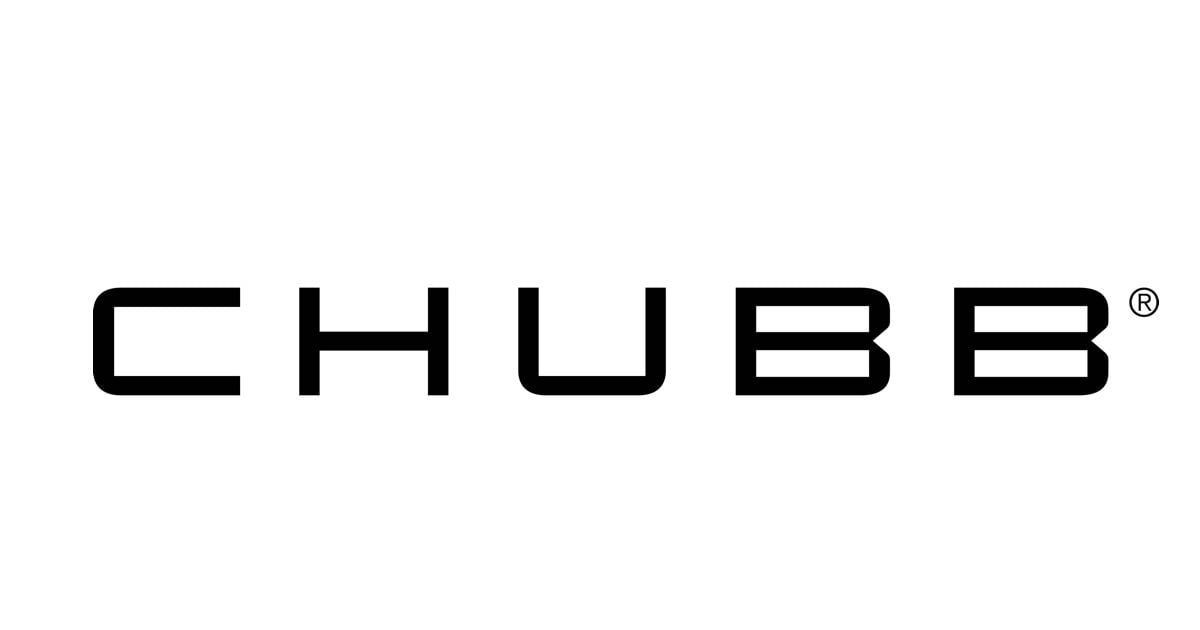Key takeaways
Chubb, USAA and Amica received some of the highest ratings in our analysis of home insurers in Idaho.
State Farm is the best cheap insurer in Idaho, with a star rating of 4.7 and an average annual premium of $1,385.
Chubb, USAA and Amica are among the best home insurance companies in Idaho, according to our analysis.
To help you find the best home insurance in Idaho, we gathered and analyzed data from insurance companies across the state. These are the insurers that earned 4.5 stars or more.
Rates are based on a sample homeowner with no recent claims, $300,000 of dwelling coverage, $300,000 of liability coverage and a $1,000 deductible.
Company | NerdWallet star rating | Average annual rate |
|---|---|---|
Not available | ||
Not available | ||
Not available | ||
$1,385 | ||
Not available | ||
$1,860 | ||
$1,605 | ||
USAA* | $1,750 | |
*USAA membership is open only to active military, veterans, some federal employees and their families. | ||
Get home insurance quotes in minutes
Answer a few questions to see custom quotes and find the right policy for you.The best home insurance companies in Idaho
Below are more details about the best homeowners insurance companies in Idaho.
Note: Some insurance companies included in this article may have made changes in their underwriting practices and no longer issue new policies in your state.

Chubb
- Far fewer consumer complaints than expected for a company of its size.
- Standard coverage includes features that many companies offer only as extras.
- Perks to help you protect your home.
- Most consumers can't get a quote online and will instead need to contact a local agent.
Chubb caters to affluent homeowners, offering coverage that often costs extra elsewhere. For example, the company’s policies include extended replacement cost coverage for the structure of your home. This is useful in case it costs more than your dwelling limit to rebuild after a disaster. Chubb’s standard policies also cover water damage from backed-up sewers and drains.
Policyholders in Idaho are eligible for free Wildfire Defense Services. These services include personalized recommendations for protecting your home and firefighters sent to your home if a wildfire is near.
» READ MORE: Chubb homeowners insurance review

Amica
- High customer satisfaction ratings and low consumer complaints.
- Platinum Choice package offers extra coverage.
- Dividend policies can return a portion of your premiums.
- You can start a quote online but may have to finish the buying process by phone.
Amica shines when it comes to customer service. It scored well in two recent J.D. Power surveys about home insurance and customer satisfaction. Amica receives far fewer complaints than expected, according to the National Association of Insurance Commissioners.
The company stands out for its broad range of coverage options. For example, you can customize your policy with extra coverage above your dwelling limit. This could be useful in case your house costs more to rebuild than expected. You may also want to add coverage for identity theft or damage from backed-up drains.
» READ MORE: Amica homeowners insurance review

Cincinnati Insurance
- Various coverage options.
- Far fewer complaints than expected for a company of its size.
- Coverage available for higher-value homes.
- No online quotes.
- Very little information on website.
If you want to do business with companies that prioritize sustainability, consider Cincinnati Insurance. In recent years, the insurer has cut fossil fuel emissions from both its facilities and company vehicles. When you buy Cincinnati home insurance, you may be able to add a “green upgrade” endorsement. This will allow you to use eco-friendly materials to repair or rebuild your home after a claim.
The company offers several other options, including comprehensive coverage for high-value homes. You may be able to add coverage for things like identity theft, personal cyber attacks or certain types of water damage.
» READ MORE: Cincinnati homeowners insurance review
State Farm
- User-friendly website.
- Agents offer personalized service.
- Policies generally include extra coverage for your home’s structure.
- Below average for claim satisfaction in a recent J.D. Power study.
As America’s largest home insurer, State Farm stands out for policies that generally include extra dwelling coverage in case it costs more than expected to rebuild your home.State Farm also offers a its long list of coverage options.
You may be able to add coverage for things like identity theft and water damage from backed-up drains. Another option may be to add an inflation guard rider to your policy. This automatically increases your policy limits to keep up with rising costs.
State Farm offers a free Ting smart plug to home insurance policyholders as a perk. This device monitors your home’s electrical network to help prevent fires.
» READ MORE: State Farm homeowners insurance review

Country Financial
- Far fewer complaints than expected for a company of its size.
- Many coverage options available.
- Can get an online quote but must finish the purchase over the phone.
Country Financial has a few levels of homeowners coverage to help you customize your package. You can also add extra coverage for the structure of your home, broader coverage for your belongings, or both.
Country Financial sells homeowners insurance through local representatives. The company draws a very low rate of consumer complaints to state regulators.
» READ MORE: Country Financial homeowners insurance review
Allstate
- Lots of discounts to help you save.
- Home-sharing coverage available.
- Many ways to customize your coverage.
- Ranked below average for consumer satisfaction in recent J.D. Power studies.
Allstate offers a long list of ways to customize your policy, including replacement cost coverage for your personal property and coverage for water damage caused by backed-up drains. Other options may include reimbursement for replacing damaged items with energy-efficient versions and home-sharing coverage.
You might also be able to upgrade your policy with the Enhanced Package. One benefit of this package is Deductible Rewards, which takes $100 off your deductible when you sign up, plus an additional $100 off for each year you go without filing a claim. If you do file a claim, your rates won’t go up.
» READ MORE: Allstate homeowners insurance review

American Family
- Low rate of consumer complaints.
- Free wildfire prevention services in select states.
- Discounts available for qualifying smart-home devices.
- May restrict liability coverage for certain dog breeds.
American Family is notable for offering broader coverage for your home’s structure than many insurers do. If you insure your home up to its replacement cost, American Family will automatically add extended replacement coverage to your policy.
American Family has several extras you can add to your policy. For instance, you can buy coverage in case a major appliance breaks down or an underground utility line needs repairs. Discounts may be available for installing smart-home devices, bundling multiple policies or setting up automatic payments.
» READ MORE: American Family homeowners insurance review

USAA
- Policies include standard coverage that often costs extra elsewhere.
- Far fewer customer complaints to state regulators than expected for a company of its size.
- Available only to active military members, veterans, some federal employees and their families.
USAA sells homeowners insurance to active military members, veterans, some federal employees and their families. If that’s you, you may want to consider USAA. The company offers perks for members of the military, like deductible-free coverage for military uniforms and equipment. USAA will also waive your deductible if your personal property is damaged or lost due to war.
USAA homeowners insurance also has certain features that many insurers charge extra for. For example, USAA covers your personal belongings on a replacement cost basis.
» READ MORE: USAA homeowners insurance review
- See all NerdWallet home insurance reviews
How much does homeowners insurance cost in Idaho?
The average annual cost of home insurance in Idaho is $1,460. That’s 31% less than the national average of $2,110.
In most U.S. states, including Idaho, many insurers use your credit-based insurance score to help set rates. Your insurance score is similar but not identical to your traditional credit score.
In Idaho, those with poor credit pay an average of $2,595 per year for homeowners insurance, according to NerdWallet’s rate analysis. That’s 78% more than those with good credit.
Average cost of homeowners insurance in Idaho by city
How much you pay for homeowners insurance in Idaho depends on where you live. For instance, the average cost of home insurance in Boise is $1,415 per year, while homeowners in Idaho Falls pay $1,655 per year, on average.
City | Average annual rate | Average monthly rate |
|---|---|---|
Blackfoot | $1,665 | $139 |
Boise | $1,415 | $118 |
Burley | $1,715 | $143 |
Caldwell | $1,485 | $124 |
Coeur d'Alene | $1,420 | $118 |
Eagle | $1,470 | $123 |
Emmett | $1,435 | $120 |
Garden City | $1,405 | $117 |
Hayden | $1,440 | $120 |
Idaho Falls | $1,655 | $138 |
Jerome | $1,690 | $141 |
Kuna | $1,455 | $121 |
Lewiston | $1,535 | $128 |
Meridian | $1,385 | $115 |
Middleton | $1,425 | $119 |
Moscow | $1,550 | $129 |
Mountain Home | $1,400 | $117 |
Nampa | $1,460 | $122 |
Pocatello | $1,630 | $136 |
Post Falls | $1,425 | $119 |
Rathdrum | $1,425 | $119 |
Rexburg | $1,655 | $138 |
Rigby | $1,615 | $135 |
Sandpoint | $1,425 | $119 |
Twin Falls | $1,460 | $122 |
The cheapest home insurance in Idaho
Here are the insurers we found with average annual rates below the Idaho average of $1,460.
Company | NerdWallet star rating | Average annual rate |
|---|---|---|
$1,220 | ||
$1,255 | ||
Grange Insurance Association | Not rated | $1,325 |
$1,385 |
Common risks for Idaho homeowners
Here are a few of the most common risks Idaho homeowners may face, along with steps you can take to insure your home against them.
Wildfire
Home insurance generally covers damage caused by fire, but there may be exclusions if you live in an area that’s at risk of wildfire. Pay particular attention to your dwelling coverage limit, which is how much the insurance company will pay to rebuild your house. Check with your insurer to ensure you have enough coverage to rebuild if necessary. Learn more about home insurance and wildfire.
Winter weather
Homeowners insurance generally covers damage caused by winter storms, but some types of damage may require extra coverage. For instance, you’ll typically need flood insurance to cover flood damage caused by snowmelt. Some insurers won’t cover damages due to frozen pipes if there’s proof of neglect, such as failing to maintain heat in an unoccupied house.
Flooding
Standard homeowners insurance doesn't cover flooding, so if you want coverage for flood damage, you’ll need to buy flood insurance. You can get flood insurance at any time, but be aware there’s often a 30-day waiting period before the coverage takes effect.
To check your flood risk, start by looking up your address on the Federal Emergency Management Agency's flood maps. However, FEMA’s maps don’t always capture all types of flood risk. You may want to check another source, like First Street, a private company that models climate hazards. Enter your address at the top of the page to see your home’s flood risk rating on a scale of 1 to 10.
» MORE: Do you need flood insurance?
Hailstorms
Home insurance typically covers hail damage, but you may have a separate deductible for wind and hail claims. Deductibles may be a flat rate, such as $1,000, or a percentage of your dwelling coverage. For example, your policy may have a $1,000 deductible for most claims and a 1% deductible for hail or wind claims. So, if your house has $250,000 worth of dwelling coverage, you’d have to pay for the first $2,500 of hail damage yourself.
Get home insurance quotes in minutes
Answer a few questions to see custom quotes and find the right policy for you.Idaho insurance department
The Idaho Department of Insurance oversees the state’s insurance industry. Its website provides information about homeowners insurance and resources for consumers who want to file a complaint against their insurers. If you have a question, you can reach out through its online form or call toll-free at 800-721-3272.
How we rate homeowners insurance
NerdWallet’s star ratings reward companies for consumer-first features and practices. We evaluate factors such as consumer experience, coverage, discounts and financial strength.
In our research, we analyzed:
More than 270 million homeowners insurance rates.
More than 100 insurance companies.
Nearly 200 homeowner profiles.
View our complete homeowners insurance rating methodology.
- Find home insurance in other states
Frequently asked questions
Is homeowners insurance required in Idaho?
Is homeowners insurance required in Idaho?
Homeowners insurance isn't required by Idaho state law. However, your lender may require you to buy home insurance. For more information, read Is Homeowners Insurance Required?
How can I save money on homeowners insurance in Idaho?
How can I save money on homeowners insurance in Idaho?
There are several ways to save money on homeowners insurance in Idaho.
Shop around to make sure you’re getting the best rate.
Choose a higher deductible. In case of any claims, you’ll pay more out of pocket, but your premiums will be lower.
Bundle your home and auto insurance for a lower overall rate. See the best home and auto insurance bundles.
Ask your insurer if you qualify for any home insurance discounts.
Star rating methodology
NerdWallet’s homeowners insurance ratings reward companies for customer-first features and practices. Ratings are based on weighted averages of scores in several categories, including financial strength, consumer complaints, coverage, discounts, claims process and website functionality. These ratings are a guide, but we encourage you to shop around and compare several insurance quotes to find the best rate for you. NerdWallet does not receive compensation for any reviews or star ratings.
Here’s how we weighted each category to come up with our list of the best home insurance companies:
Consumer experience (40%).
Financial strength (30%).
Coverage (25%).
Discounts (5%).
Read our full home insurance ratings methodology for more details.
Homeowners insurance rates methodology
NerdWallet calculated median rates for 40-year-old homeowners from various insurance companies in the 25 largest cities in each U.S. state by population. All rates are rounded to the nearest $5.
Sample homeowners were nonsmokers with good credit living in a single-family, two-story home built in 1984. They had a $1,000 deductible and the following coverage limits:
$300,000 in dwelling coverage.
$30,000 in other structures coverage.
$150,000 in personal property coverage.
$60,000 in loss of use coverage.
$300,000 in liability coverage.
$1,000 in medical payments coverage.
We made minor changes to the sample policy in cases where rates for the above coverage limits or deductibles weren’t available.
In states where credit is a rating factor, we changed the credit tier from “good” to “poor,” as reported to the insurer, to see rates for homeowners with poor credit.
These are sample rates generated through Quadrant Information Services. Your own rates will be different.
Complaint methodology
NerdWallet examined complaints received by state insurance regulators and reported to the National Association of Insurance Commissioners in 2022-2024. To assess how insurers compare with one another, the NAIC calculates a complaint index each year for each subsidiary, measuring its share of total complaints relative to its size, or share of total premiums in the industry. To evaluate a company’s complaint history, NerdWallet calculated a similar index for each insurer, weighted by market shares of each subsidiary, over the three-year period.
NerdWallet conducts its data analysis and reaches conclusions independently and without the endorsement of the NAIC. Ratios are determined separately for auto, home (including renters and condo) and life insurance.

